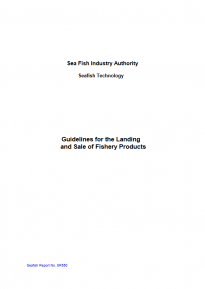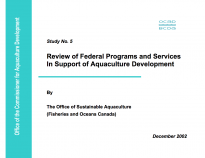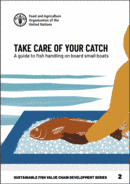Services and Infrastructure for Handling After Harvest
For aquaculture producers to be able to put good harvesting and handling practices that maintain quality and reduce waste into place, some of the key services required are:
- Clean water supply for cleaning equipment and personal hygiene
- Supply of clean ice
- Service providers for nets, pumps, fish boxes, insulated boxes, cleaning equipment, live fish holding and transport
- Reliable source of electricity
- Engine repair, servicing and supplies
- Fuel
- Finance
- Extension services for knowledge and skills
- Research and development including technical as well as market oriented
Investment in improved technologies will be facilitated by good access to affordable finance. Furthermore, access to knowledge and skills related to good practice will be influenced by the quality of extension and educational services and the access producers have to such services.
Key infrastructure to assist in the application of best practices and reduced food loss and waste (FLW) include roads, landing and handling facilities and ports that enable safe and hygienic handling, transfer and sale of fish and the delivery of the aforementioned services.
Key Publications
Guidelines for the Landing and Sale of Fishery Products Technical Guide These guidelines provide advice on maintaining standards of fish quality and food safety, and on maximizing value through efficient landing and sale operations, and is an intended reference for trade and official bodies. | |
Review of Federal Programs and Services in Support of Aquaculture Development This report includes a detailed list of the Canadian federal government programs and services which relate to and influence aquaculture activities. | |
This study presents detailed findings from a field survey of Myanmar’s aquaculture value chain. The findings have important policy implications to help unlock the sector’s full growth potential and food security contributions. |
More Resources
More Resources
31 October 2023














